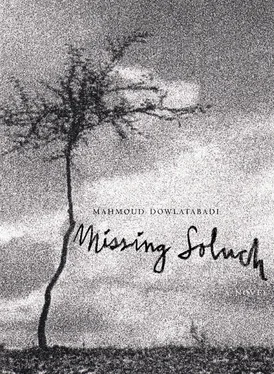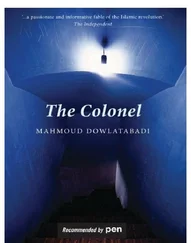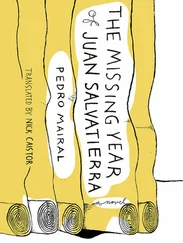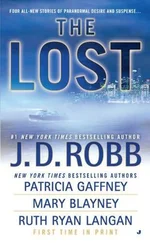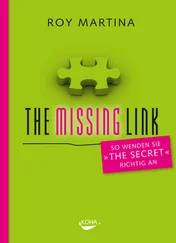Mahmoud Dowlatabadi
Missing Soluch
Mergan raised her head from the pillow. Soluch was gone. Her children were still asleep — Abbas, Abrau, and Hajer. Mergan tied the loose curls around her face into a scarf, rose, and stepped through the doorway into the small yard. She walked straight to the bread oven. Soluch was not there. Lately, at night, Soluch had been sleeping outside next to the oven. Mergan didn’t know why. She would just see him sleeping out beside the oven. He had been coming back home late at night, very late. He would go straight to the awning over the oven and curl up beneath it. He had a tiny body. He would fold himself, pull his knees to his belly, and fit his hands between his thighs, which were hardly more than two bones. He would rest his head against the edge of the wall, draw up his donkey-skin blanket — made from the skin of the same donkey that got sick and died the last spring — and go to sleep. Or, perhaps he wouldn’t sleep. Who knows? Maybe he stayed up until dawn, muttering and mumbling to himself. He’d grown less talkative of late. He’d come and go without a word. In the mornings, Mergan would stand over him, and Soluch would rise in silence. Not looking at his wife, he would sneak out before the children were up, exiting through the opening in the wall. Mergan would only hear her husband’s cough as he walked away down the alleyway. And then Soluch would be gone. Soluch and his cough would be gone. He didn’t even own shoes or slippers for Mergan to hear his footsteps as he left. But where would he go? Mergan could never understand. Where could he go? Where would he lose himself? It wasn’t clear — no one knew. Or, no one would say. People kept to themselves. People were preoccupied with their own lives and hid their faces inside upturned collars. They wouldn’t show their faces. No one would see anyone. It was as if the residents of the village of Zaminej were hidden beneath a dry layer of ice. The boundless, insistent cold would fill the empty and winding alleys of Zaminej. Ragged Soluch would head out and disappear, wearing no shoes and no hat, barely protected by the hide of his old donkey thrown over his shoulders, in a cold that was so cold even a stray dog wouldn’t linger for a moment outside. And Mergan had no idea where her husband had gone. At first, she was curious where, but she eventually lost interest. So he’d go. So let him!
Mergan no longer felt close to her husband. Her attraction to him had faded long ago, and now only habit remained. Lately, even the habit was becoming weaker and weaker … and soon, it seemed, it would be gone altogether. All of the visible and the hidden things that bind a husband and wife together no longer existed between Mergan and Soluch. They shared neither their work nor their intimate lives. Without work there’s no pleasure, and without pleasure, no love. Without love, there’s no speaking, and without speaking, there is no shouting and arguing, no laughter and joy. Both the heart and the tongue grow old, breath dies on the lips. The face loses life when devoid of light in the eyes. Hands grow idle from boredom, and the shovel and hoe and spade and scythe lie unused in the empty shed, hidden under a heavy layer of dust. What else? Once things are so bad that even the donkey has died, and if the winter’s so dry and cold that the body tries to press up under the animal’s cold, black body, with sorrow overflowing from the very pit of the soul … Under these circumstances, what is left to bind two people together? What is left to feel or to say?
Of late, Soluch had grown confused, silent. He wouldn’t talk, and it was as if he couldn’t hear either. It wasn’t as if Mergan had very much left to say to see if he could hear her or not. Was there anything left, even one small thing, that they still shared to give Mergan an excuse for speaking to him? When everything has been buried in a sickly and silent dust, what good is there in opening one’s lips to speak? Mergan’s lips had been sewn shut by invisible hands. Only her eyes remained open. Her eyes were wide open as if she were in shock. As if even the very walls astonished her. Or the air. Or day and night. As if she were astonished by her very being, her walking, her breathing, her feeling the cold to the very marrow of her bones. As if the fact that she had a mother who had given birth to her, suckled her, and had raised her was astonishing and terrifying. Was it true? Could it be possible? What a strange, incredible world.
Everything was strange. For Mergan, everything was strange, and the strangest of all was Soluch’s empty place. But never before had his absence provoked such a reaction in her. This wasn’t fear; this was terror. A new terror, sudden and unfamiliar. Without realizing it, her eyes were wide open, her mouth left gaping. Soluch’s empty place seemed emptier today than ever before. It seemed like a sign to Mergan. Something both visible and hidden, like what the village women called “the spirit,” a sort of myth. It was possible that Soluch had really gone. This was becoming clearer to Mergan. She began to realize that Soluch’s removing himself from everything, his avoiding Mergan and the house, was not just a sign of something else, but rather revealed the heart of the matter. Soluch had separated himself, cast himself off far away. Like the tip of a finger cut off, tossed aside. How many long nights had Soluch passed alone going to Kelenjar? How many heavy days had he spent forlorn and weak in some ruins or a field or in shelters …? What thoughts had he had, what had he imagined? He had — no doubt — painfully torn the children from his heart, one by one, and cast them away. And in the same manner, he had hidden Mergan away in the folds of his memories. Nothing was left for him to leave behind — certainly not his regrets. He’d taken those along with him. Apparently he did. It’s not easy to tear regret from one’s heart and to cast it away. And it’s not easy to leave it in someone else’s care. No, he must have gone with a heavier burden on his heart. He must have gone. So let him go. Let him go!
Let him go?
This seemed easy for Mergan to say to herself. But only to herself. Because she had never before felt as at one with Soluch as she did at this moment. She sensed she had suddenly lost something, and she didn’t know what it was. She knew its name, which was Soluch, but she didn’t know its essence … It felt like something else. Was it possible to say that Mergan had, in fact, lost part of herself? She didn’t know. It wasn’t her hand or an eye or her heart. No, her spirit, her sensation, her self had been lost. It felt as if the ceiling was torn off above her, her walls, brought down. She felt naked. Naked inside, naked and lying on ice. As if her arms were bound behind her. Just as if she had been thrown naked and bound and speechless onto the surface of ice that formed in the gutter beside the public baths. Naked, yet without a shadow. Is it possible for any object to lack a shadow? This was what Mergan felt of herself: exposed, bound, shadowless, cold, threatened. Her heart beat as a lump of burning coal in the cold of midnight. It burned quickly. Something was alight. The old ashes that covered everything in Mergan’s life had suddenly been blown off from her heart. Something lost, voiceless, and forgotten had raised its head inside her chest. Soluch, an ancient love, covered with rust. A kindness mixed with pain, a sudden sensation; she suddenly realized how much she wanted Soluch.
As long as you still have your eyes, everything looks normal. But if somehow suddenly you’re blinded — say, by a hot iron or by a beast’s cold claw — all at once you can no longer see the fire in the fireplace that you had stoked for all your life. For the first time, you realize what you’ve given up, what a dear thing it is you’ve lost: Soluch.
Читать дальше
